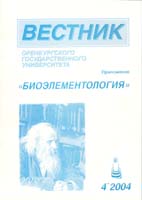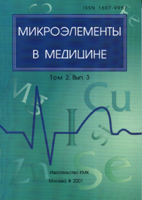EN
Since 2004 Orenburg State University Institute of Bioelements is the satellite centre to Trace Element — Institute for UNESCO in Russia.
Institute of Bioelements is situated in one of the most amazing cities of Russia. During the reign of the empress Anne (1730–1740) the city was conceived as "a window to Asia", and deliberately located at the cross — roads of trade routes between Europe and Asia. There is a geographic boundary between Europe and Asia.
The Institute is the division of the youngest and most dynamically developing universities of Russia — Orenburg State University. It is the largest educational, scientific and industrial centre with a powerful development potential.
- Complex analytical laboratory
- Laboratory of medical bioelementologie
- Laboratory of agricultural bioelementologie
- Laboratory of food and pharmacological bioelementologie
Representatives of the satellite centre
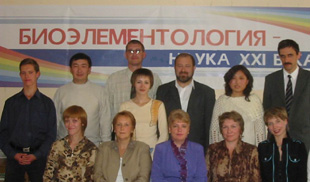
-
Chairman Prof. Skalny A.V., MD
PO BOX 56, Moscow 125047, Russia
phone: +7 095 9177121, skalny@orc.ru
-
Vice-chairman Dr. Notova S.V., MD
Orenburg Russia, phone/fax: +7 3532 76-36-36
-
Secretary Dr. Rastopchin O.I
Orenburg Russia, phone/fax: +7 3532 76-36-36, rastopchin@mail.ru
- Barisheva E.S., MD;
- Prof. Boev V.M., MD;
- Dr. Brudastov J. A., MD;
- Prof. Bystrykh V.V.;
- MD Demidov V. A., PhD;
- Grabeklis A.R.;
- Kanavina O.A.;
- Lebedev S.V., PhD;
- Lobanova Yu.N.;
- Miroshnikov S.A., PhD;
- Dr. Notov O.S.;
- Prof. Radish I.V., MD;
- Rudakov I.A., MD;
- Dr. Dzhaugasheva K.K., MD;
- Skalnaya M.G., MD;
- Prof. Tinkov A.N., MD.
- Federation of European Societies on Trace Elements and Minerals
- Trace Element institut pour l'Unesco
- Gesellschaft für Mineralstoffe und Spurenelemente
- Italian association for study of trace element in living organism
- Sociedad Espaňola de bioquímica clínica y patología molecular
- The Russian Society of Trace Elements in Medicine
In accordance with the Science Agenda, adopted at the UNESCO World Conference on Science in Budapest, Hungary, June 26 — July 1, 1999, Institute of Bioelements as a satellite centre Trace Element — Institute for UNESCO (TEU) has agreed to promote:
- Analytical chemistry;
- Geo-environmental studies - the influence of the ecosystem: industrialised countries versus developing countries;
- Scientific co-operation to reduce avoidable ill-health.
- Evaluation of how the teenagers in Orenburg are provided with micronutrients for the prophylactic of some ecology-dependent diseases.
- New sources of micronutrients: discovering and testing in order to correct the alimentary deficiency in the nourishment of the man and animals.
- New technologies in the use of probiotical complexes in the nourishment of the man and animals.
- Ecological monitoring of the foodstuff and vegetative raw material in the territory of Orenburg area.
- Theory of conformity of the food substrates to the needs of the alive organism — new approaches.
- Evaluation and correction of composition of potable water in the territory of Orenburg area.
7 monographies, 8 manuals and circulars, 159 articles including 16 publications in the foreign periodicals were published by our team through 2004–2005.

- TRACE ELEMENT — INSTITUTE FOR UNESCO, Lyon, FRANCE
- Prague, REPULIQUE TCHEQUE
- Budapest, HONGRIE
- Visakhapatnam, INDE
- Fukuroi City, JAPON
- Nairobi, KENIA
- Tripoli, LIBYE
- Vilnius, LITHUANIE
- Bamako, MALI
- Marrakech, MAROC
- Maputo, MOZAMBIQUE
- Moscow, RUSSIA
- St. Louis, SENEGAL
- Monastir, TUNISIE
- Ankara, TURKEY
- Jamaï, Trinité et Tobago, LES ANTILLES
- Kiev, UKRAINE
- Sao-Paulo, BRAZIL
- Lodz, POLOGNE
- Minsk, BYELORUSSIA
- Teheran, IRAN
- Orenburg, RUSSIA
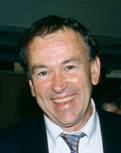 Dear Professor SKALNY,
Dear Professor SKALNY,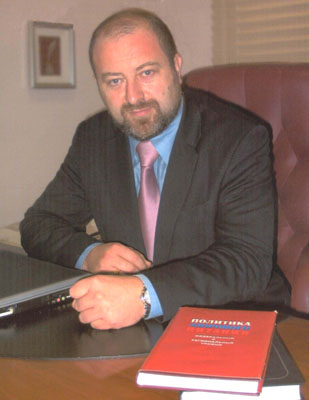 Opening of the Satellite Centre of Trace Element — Institute for UNESCO in Orenburg and conferment of RUSTEM as an associated member of this unique scientific organization is a significant step in development of the knowledge on biological role of trace elements in Russia and CIS. The Bioelementology Institute staff and all RUSTEM members get excellent opportunity to rise the level of their scientific investigations and achieve considerable success in practical health service by involving in collaboration with so many as 20 counties of the world.
Opening of the Satellite Centre of Trace Element — Institute for UNESCO in Orenburg and conferment of RUSTEM as an associated member of this unique scientific organization is a significant step in development of the knowledge on biological role of trace elements in Russia and CIS. The Bioelementology Institute staff and all RUSTEM members get excellent opportunity to rise the level of their scientific investigations and achieve considerable success in practical health service by involving in collaboration with so many as 20 counties of the world.
